law
It Is Not Wisdom but Authority That Makes a Law – T. Tymoff
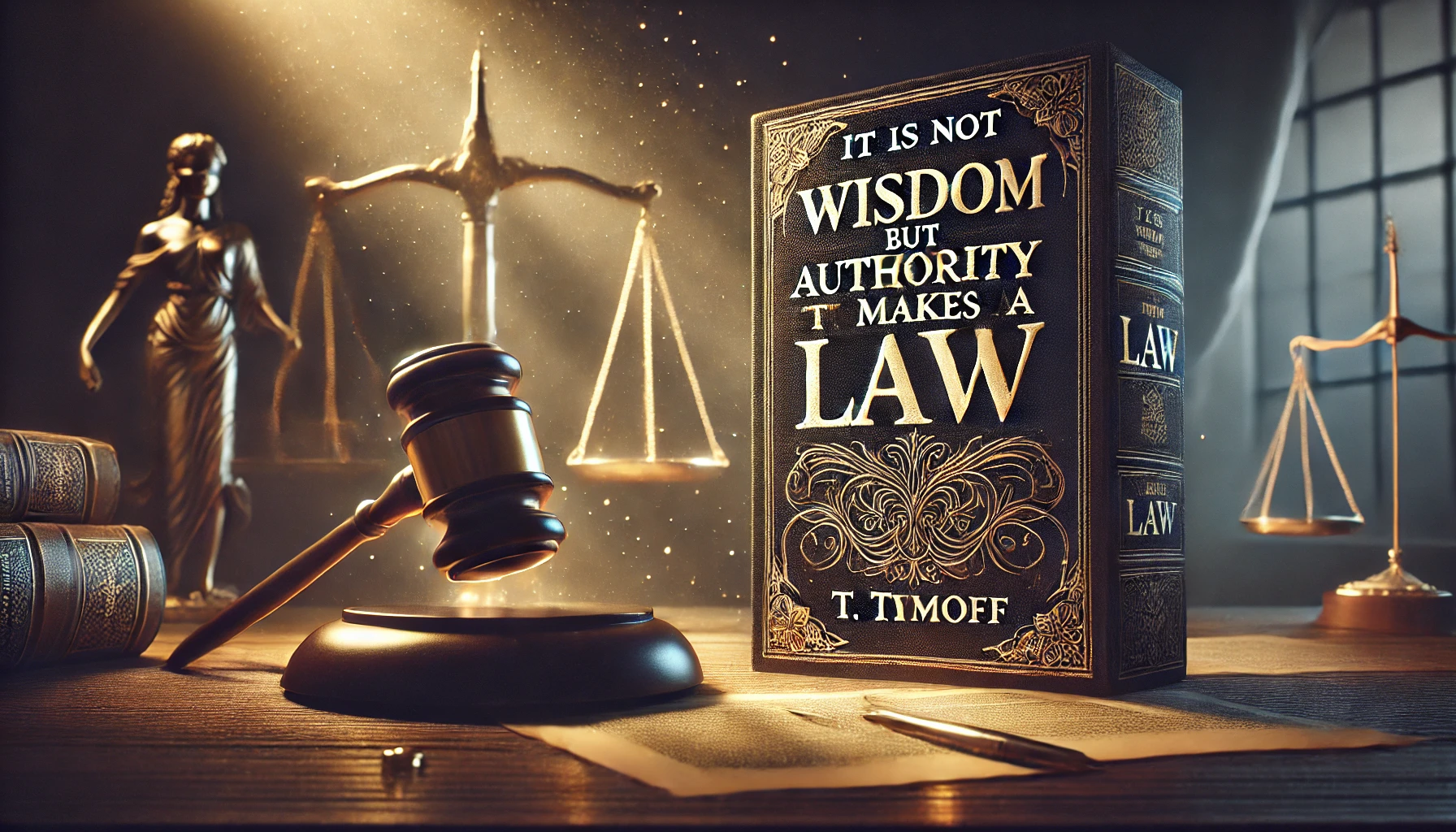
Introduction
It Is Not Wisdom but Authority That Makes a Law – T. Tymoff explained through this statement that true laws arise from political authority rather than from wise judicial principles. People who control power tend to create It Is Not Wisdom but Authority That Makes a Law – T. Tymoff rather than those who demonstrate wisdom or fairness. Through in-depth analysis this article explains the origin of laws through authority systems along with their effects on legal control and methods to overcome this authority-based governance issue.
The Nature of It Is Not Wisdom but Authority That Makes a Law – T. Tymoff : Authority vs. Wisdom
Authority as the Backbone of Lawmaking
Every structured human society needs laws as its foundational elements. It Is Not Wisdom but Authority That Makes a Law – T. Tymoff originate primarily from governance structures as opposed to emerging through broad-based collaboration. Throughout history those with positions of power such as monarchs along with political participants and regulatory agencies have developed legal systems which then become enforceable codes. The authority performs essential functions in law enforcement because individuals adhere better to rules which authorities monitor and execute consequences for non-compliance.
People tend to follow authority-based rules for better social control. Tax laws together with traffic regulations receive limited approval from citizens but their enforcement maintains societal operations. The absence of authority control would generate both chaos and anarchy as result.
The Wisdom Gap in Legal Systems
The legislative stage fails to recognize wisdom alongside essential authority need for successful implementation. The qualities needed for wisdom—understanding combined with empathy alongside foresight—do not necessarily match the governing preferences of those who hold power. A significant portion of modern legislation responds to immediate situations ahead of long-term impact analysis. The absence of applicable wisdom tends to produce unethical regulations that bring harm to vulnerable groups of people.
Two historic examples demonstrate that laws guided by authorities often fail to meet basic moral standards: segregation legislations in the United States and colonial administration displays similar institutional misconduct. It Is Not Wisdom but Authority That Makes a Law – T. Tymoff makers designed these regulations to support their personal advantage instead of promoting inclusiveness or fairness.
Balancing Authority with Wisdom
Just It Is Not Wisdom but Authority That Makes a Law – T. Tymoff require establishing equilibrium between the knowledge of governing officials and their ability to implement it. Law enforcement requires authority but wisdom makes it possible to create laws that benefit society as a whole. The proper balance arises when democratic procedures combine with public dialogue and expert knowledge to develop laws.
Historical Examples of Authority-Driven Laws
The Feudal System: Authority Without Fairness
During. ToolTip During this period landowners together with monarchs created rules which undermined peasant interests. Authority-driven laws existed primarily to sustain power structures without consideration for fairness or equity.
Exploitation Through Legislation
Colonial governments enforcedIt Is Not Wisdom but Authority That Makes a Law – T. Tymoff in conquered lands that served their objectives to control resources and forced labor. Colonial rules operated to support colonizers’ interests without any attention to indigenous human rights or requirements. Such lack of wisdom coupled with indifference in these legal systems established enduring social differences between people and economic gaps between social classes.
Modern-Day Examples: Authoritarian Regimes
Zealous control over governance by authoritarian systems leads authorities to deploy laws for domination rather than achieving fair justice systems. Freedom of speech together with assembly rights along with freedom of press exemplify how laws designed by governing authorities cause dissent suppression and block progress. Ruling parties benefit from these It Is Not Wisdom but Authority That Makes a Law – T. Tymoff which shut down all marginalized viewpoints.
The Role of Democracy in Mitigating Authority’s Excesses It Is Not Wisdom but Authority That Makes a Law – T. Tymoff
Public Participation in Lawmaking

One defining aspect of democratic systems is their capability to incorporate citizens in the creation of It Is Not Wisdom but Authority That Makes a Law – T. Tymoff. When people vote for representatives they gain influence over which laws their community and country will implement. The present legislative framework maintains imperfect governance although it creates equilibrium against executive domination.
Judicial Oversight
In democratic judicial systems an independent judiciary helps protect a system of laws which remains just and fair to every citizen. Since authorities cannot control all political powers courts function as constitutional guardians who defend against laws that violate the constitution.
Advocacy and Activism
Through their active involvement civil society organizations alongside activists contribute to the development of laws. Through their advocacy efforts they create momentum which drives the development of wiser and more fair laws. The civil rights movement together with environmental advocacy groups stand as examples of organizations that achieved meaningful policy transformations on a global scale.
Challenges of Authority-Driven Laws in Contemporary Society
Inequality and Power Dynamics
Preferences of powerful authorities shape many laws resulting in continuing social inequality. Presently numerous tax codes provide advantages to the rich while minimum wage requirements exist insufficient to afford basic necessities for workers. To eliminate disparities system changes with enhanced public participation are required.
Technological Advancements and Legal Adaptation
Fast-moving technological advances create difficulties for the operation of legal systems. Authoritative bodies face instability when they attempt to create legislation for new advancements such as artificial intelligence and data privacy and cryptocurrency. Too little wisdom and insufficient expertise enables existing laws to become unnecessary through obsolescence or failure to achieve their goals.
Corruption and Lack of Transparency
Many lawmaking systems permit authorities to become powerful enough to establish benefits that solely support individual groups. To protect against unauthorized power misuse alongside the maintenance of law standards tied to public benefit law enforcement requires transparent accountability systems.
FAQs
It Is Not Wisdom but Authority That Makes a Law – T. Tymoff The author argues that law-making depends primarily on authority rather than intelligent knowledge.
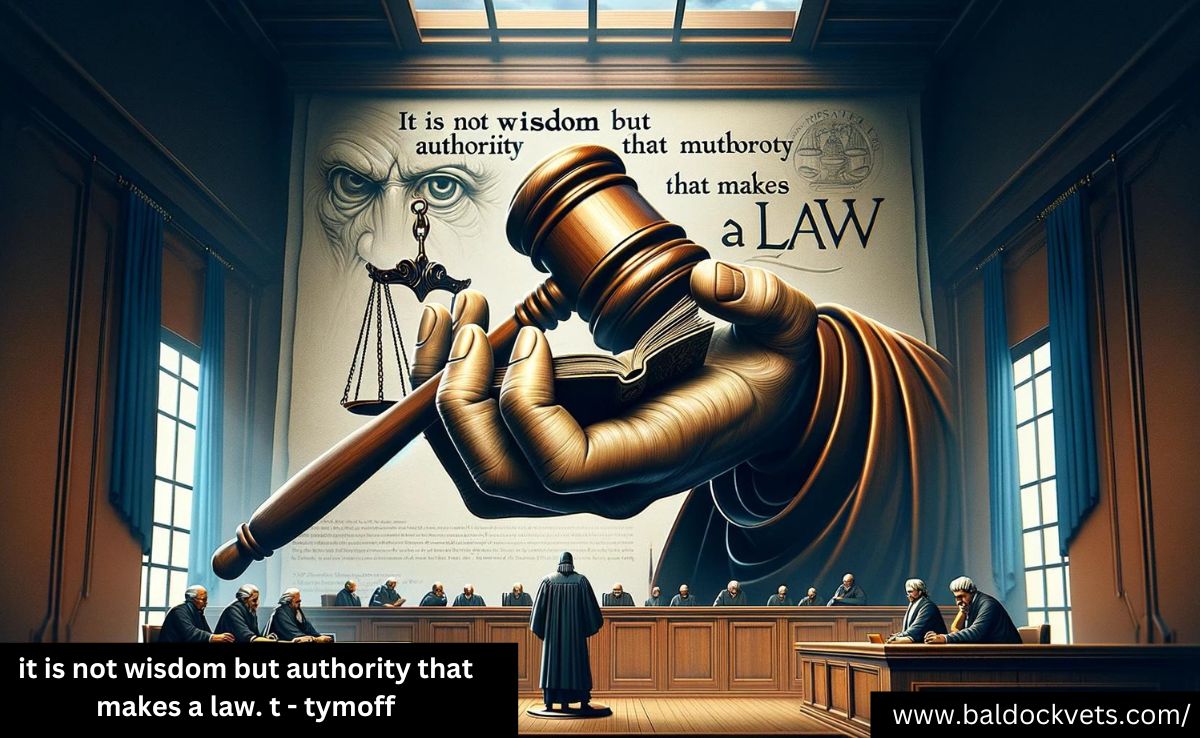
Laws typically get their origin and enforcement from authoritative positions although those who set them may lack both wisdom and fairness. Augustine declares that the enforcement of laws through authority techniques produces obedience while obtaining neither fairness nor commendable insight.
Why should wisdom matter during the lawmaking process?
The application of wisdom leads to ethical lawmaking which creates inclusion and brings lasting value to society. When laws lack wisdom both social injustice and fundamental problem resolution become difficult to achieve.
What procedures exist to combine authority with wisdom while creating laws?
Through democratic systems alongside public involvement and judicial oversight as well as diversity-driven policy-making society can achieve equilibrium between authority and wisdom.
Are all authority-driven laws unjust?
Not necessarily. It Is Not Wisdom but Authority That Makes a Law – T. Tymoff By itself authority functions as a vital component in law enforcement yet without wisdom laws could become unjust. Developing jurisprudence requires struck balance for producing equitable and operational legal structures.
Can ordinary people affect how laws get made?
The lawmaking process lets people take part in votes then lobby for change while becoming members of civil society and speaking up at public events. Getting informed and taking action produces the most effective way to shape the development of new laws.
Conclusion
According to this statement the creation of laws requires authority as a central ingredient over any existing elements of It Is Not Wisdom but Authority That Makes a Law – T. Tymoff. Many laws require authority for enforcement yet wise decisions drive fairness and justice together. A comprehensive understanding of. Matcher and committed advocacy for procedurally more inclusive approaches enables society to develop laws that benefit everyone. The objective must concentrate on connecting authority structures to wise practices so that laws scaffolding social order expand social empowerment throughout all members of society.

law
It Is Not Wisdom but Authority That Makes a Law – T. Tymoff: An In-Depth 7 Analysis
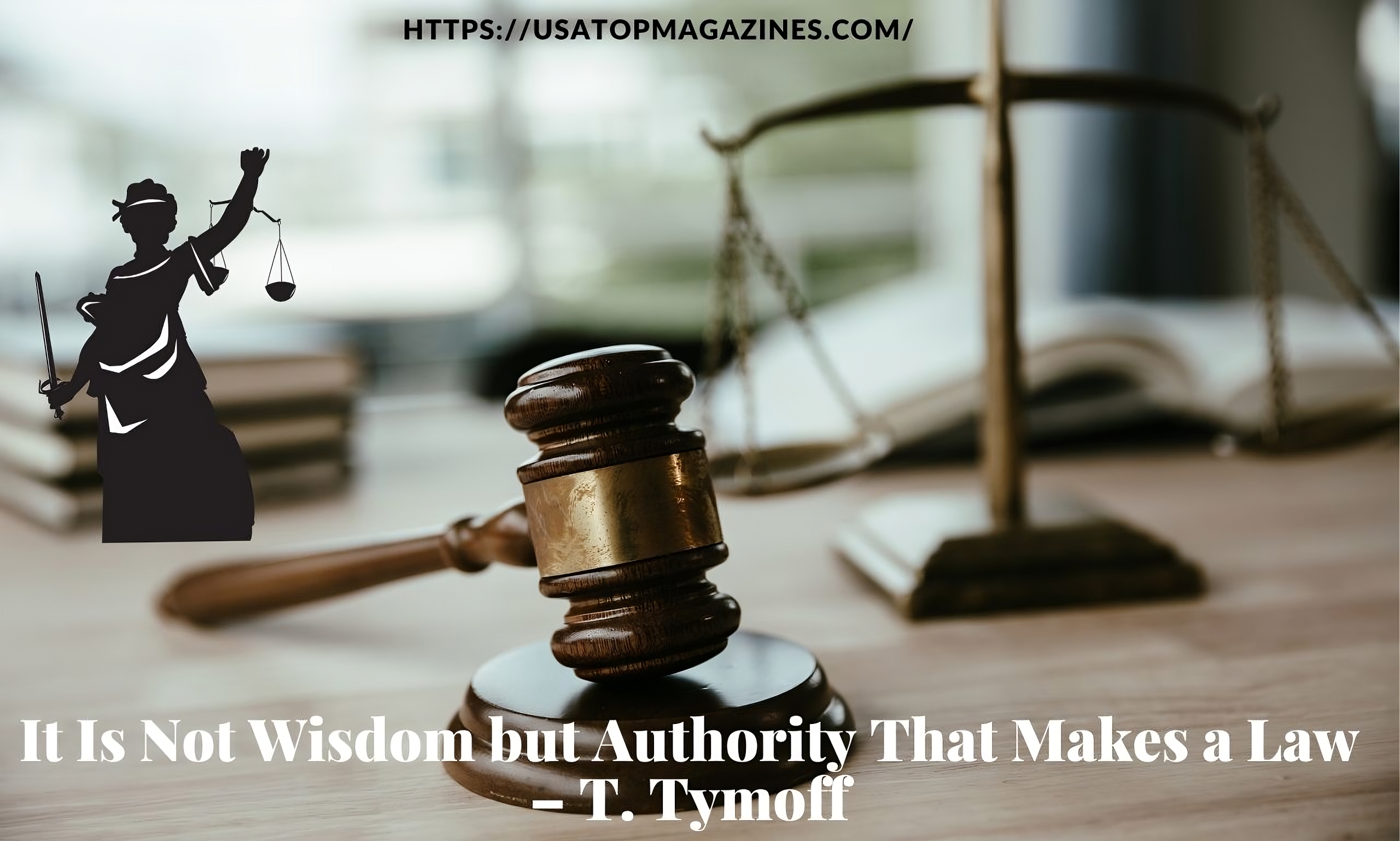
Introduction
“It Is Not Wisdom but Authority That Makes a Law – T. Tymoff” is a provocative statement that challenges the conventional notion that laws are founded on moral or intellectual superiority. Instead, it argues that the legitimacy and enforceability of laws come primarily from the power and institutional backing of those who create and enforce them. Attributed to T. Tymoff, this phrase forces us to confront the reality that, in legal systems, the force behind a law is often less about its inherent ethical or philosophical soundness and more about the authority of its origin.
In a society, laws are designed to maintain order, protect rights, and ensure stability. However, these outcomes are only possible when there is a recognized and accepted power behind the law. This article will explore the origins of this idea, examine the philosophical debates surrounding it—particularly the contributions of Thomas Hobbes—and distinguish between law and wisdom. We will also delve into the critical role that authority plays in law-making, discuss the benefits of a people-driven approach to authoritative law, and answer frequently asked questions on the subject. Finally, we conclude by summarizing how a balanced legal system can harness both wisdom and authority for the greater good.

I. Philosophical Foundations: Authority Versus Wisdom
The Origin of the Idea (It Is Not Wisdom but Authority That Makes a Law – T. Tymoff)
The statement “It is not wisdom but authority that makes a law” encapsulates a central tenet of legal positivism—a theory which asserts that the validity of a law is determined by its source rather than its moral content. Although T. Tymoff popularized the expression in modern discussions, its philosophical underpinnings can be traced back to earlier thinkers. One of the most influential philosophers associated with this line of thought is Thomas Hobbes.
Thomas Hobbes and the Power of Authority
Thomas Hobbes, the 17th-century political philosopher, is best known for his work Leviathan, where he argued that human life in the absence of a strong central authority would be “solitary, poor, nasty, brutish, and short.” For Hobbes, the imposition of order through an authoritative government is essential to prevent society from descending into chaos. In Hobbes’ view, it is the authority of the sovereign that transforms commands into laws that people obey, regardless of whether these laws are inherently wise or just.
Hobbes believed that without the coercive power of a centralized authority, laws would be mere suggestions, incapable of compelling compliance. This idea underscores the notion that the enforceability and legitimacy of laws are not derived from their philosophical or moral merits but from the power that backs them.
Wisdom Versus Authority in Legal Thought
While authority refers to the power and legitimacy to enforce rules, wisdom involves the ethical insight and moral judgment used to shape those rules. Philosophers like Plato envisioned an ideal society governed by “philosopher kings,” where wise rulers would use their insight to craft laws that promote the common good. However, even Plato acknowledged that without the necessary authority to implement these laws, wisdom alone would be insufficient to maintain order.
It Is Not Wisdom but Authority That Makes a Law – T. Tymoff
Thus, the debate between wisdom and authority continues to be a central theme in legal and political philosophy. It raises critical questions about the nature of law-making: Should laws be valued primarily for their ethical content, or does their practical enforceability through authoritative power make them the true arbiters of social order?

II. Law Versus Wisdom: It Is Not Wisdom but Authority That Makes a Law – T. Tymoff Defining the Concepts
What Is Law?
Law is a system of rules that are created and enforced by governing bodies to regulate behavior within a society. These rules provide the framework for maintaining order, resolving disputes, and protecting individual rights. Laws are codified in constitutions, statutes, and regulations, and their legitimacy is derived from the authority of the institutions that enact and enforce them.
Key aspects of law include:
- Creation and Codification: Laws are systematically drafted and codified by legislatures or ruling bodies.
- Enforcement: Law enforcement agencies, such as the police and the judiciary, ensure that these laws are followed.
- Legitimacy: The legitimacy of a law is rooted in its creation by a recognized authority, which gives it the power to bind society.
What Is Wisdom?
Wisdom in the context of law-making refers to the application of knowledge, ethical reasoning, and experience to create fair and just laws. It involves understanding the long-term implications of legal decisions and ensuring that laws serve the greater good of society. Wisdom requires the ability to balance diverse interests and to foresee the societal impact of legislative actions.
Characteristics of wisdom include: It Is Not Wisdom but Authority That Makes a Law – T. Tymoff
- Ethical Insight: Wisdom is concerned with what is right and just, guiding lawmakers to consider moral implications.
- Experience and Prudence: It draws upon historical knowledge and practical experience to shape sound policies.
- Flexibility and Adaptability: Wise laws are designed to be adaptable to changing social conditions and evolving cultural values.
The Distinction: Enforcement vs. Ideation
The primary difference between law and wisdom lies in their functions:
- Law is primarily about enforcement. It is the set of rules that governs behavior, backed by the power of the state. Its strength lies in its ability to compel obedience through the threat of sanctions.
- Wisdom is about ideation and ethical guidance. It informs the content of laws, ensuring that they are not only effective but also fair and just. However, without the power of authority, wisdom remains theoretical and cannot secure compliance.
This distinction highlights the pragmatic reality that, in order for laws to be effective, they must be supported by a recognized authority—even if that authority’s power is not always coupled with ideal wisdom.
III. It Is Not Wisdom but Authority That Makes a Law – T. Tymoff: The Role of Authority in Law-Making
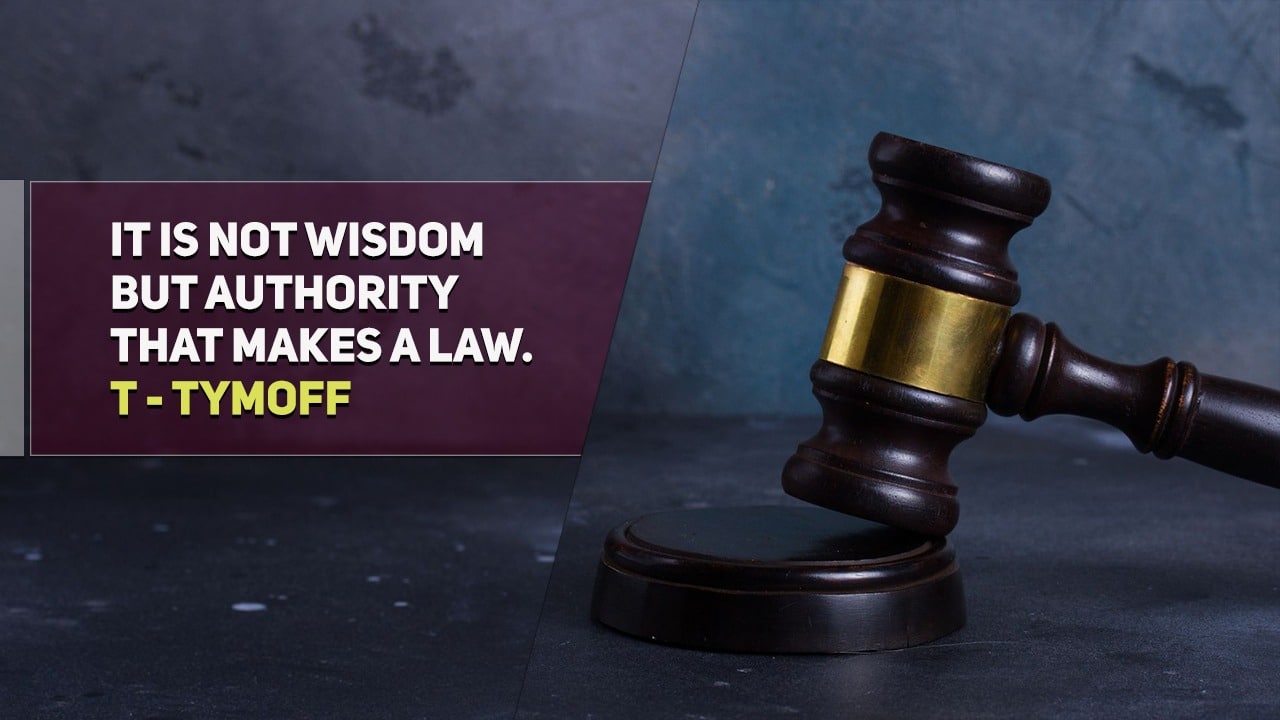
The Necessity of Authority
Authority is the cornerstone of any legal system. It is the force that ensures laws are obeyed and provides the legitimacy needed for the rule of law. Authority manifests in several forms, each contributing to the establishment and enforcement of laws:
- Traditional Authority: Based on customs and long-standing practices, traditional authority is often inherited or culturally embedded. For example, monarchies or tribal chieftains derive their power from historical and cultural traditions.
- Charismatic Authority: This form of authority is derived from the personal qualities and leadership of an individual. Charismatic leaders may inspire loyalty and obedience based on their unique presence and vision.
- Legal-Rational Authority: Predominant in modern democracies, legal-rational authority is rooted in formal legal systems and codified rules. Laws enacted by elected officials or recognized institutions possess this type of authority.
How Authority Shapes Law
The power of authority transforms legal ideas into enforceable mandates. Consider the following mechanisms:
- Legislative Process: Laws are created through formal processes involving debate, drafting, and approval by governing bodies. The mere fact that a law is passed by a legitimate legislative body gives it authority.
- Enforcement Agencies: Institutions such as the police and judiciary are tasked with enforcing the law. Their ability to impose penalties for non-compliance reinforces the authority behind the law.
- Sanctions and Penalties: The existence of punitive measures, such as fines or imprisonment, ensures that the law is not merely aspirational but has tangible consequences.
Authority as a Stabilizing Force
A legal system built on strong authority contributes to social order and stability. When citizens recognize and accept the authority of their governing institutions, they are more likely to adhere to the laws, leading to a more predictable and orderly society. Even if the laws themselves are not the product of ideal wisdom, their enforceability under authoritative power ensures that they serve their fundamental purpose of maintaining order and protecting rights.
The Legitimacy of Authority
For authority to be effective, it must be perceived as legitimate by the people it governs. Legitimacy arises from several factors:
- Democratic Processes: When laws are enacted through transparent, participatory processes, they are more likely to be seen as legitimate.
- Rule of Law: A system where every individual, including those in power, is subject to the law reinforces the legitimacy of authority.
- Accountability and Transparency: Institutions that hold themselves accountable and operate transparently gain the trust of the public, further solidifying their authority.
IV. Benefits of People’s Role in Authority-Driven Law
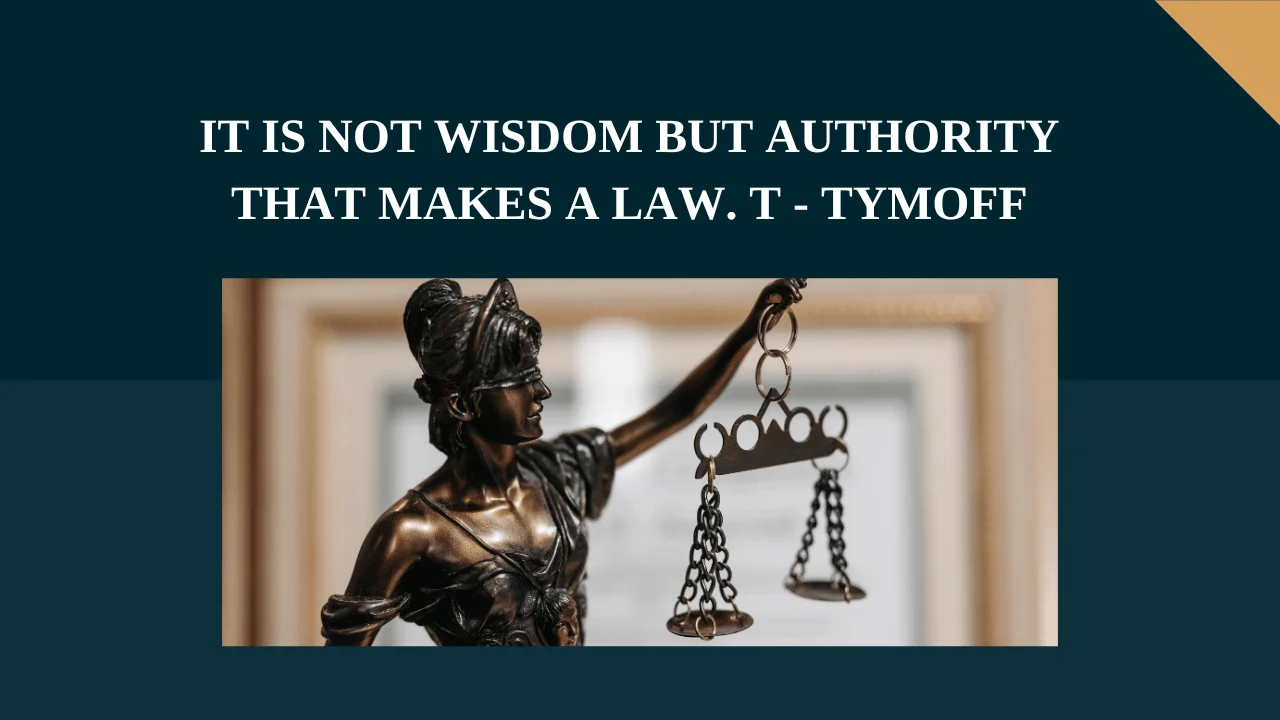
Enhancing Social Cohesion and Order
When authority is exercised responsibly, it enhances social cohesion by providing a clear and consistent framework for behavior. Laws that are enforced effectively help maintain order, reduce chaos, and promote a sense of security among citizens. This, in turn, fosters a stable society where individuals can plan their lives with confidence.
Incorporating Public Wisdom
Although authority is crucial for enforcement, the input of the people is equally important in shaping laws that are both just and effective. A legal system that integrates public wisdom with authoritative power offers several benefits:
- Increased Legitimacy: Laws that reflect the values and needs of the community are more likely to be respected and followed.
- Better Policy Outcomes: Engaging the public in the law-making process can lead to policies that are more responsive to the realities of everyday life.
- Enhanced Accountability: Public participation acts as a check on authority, ensuring that power is not abused and that laws remain aligned with the common good.
Promoting Justice Through Balanced Governance
A balanced approach that merges authority with public wisdom can help prevent the pitfalls of authoritarian rule while avoiding the inefficiencies of a system that relies solely on idealistic deliberation. Such a system:
- Ensures Fair Enforcement: Authority guarantees that laws are applied uniformly, preventing arbitrary or discriminatory practices.
- Encourages Adaptive Legislation: Wisdom allows for laws to be refined over time in response to changing social conditions, ensuring their continued relevance.
- Fosters Trust: When citizens see that laws are both just and enforceable, they are more likely to trust the institutions of governance, thereby reinforcing the stability of the legal system.
Real-World Examples
Modern democracies offer numerous examples of how authority and public input can combine to create effective legal systems:
- Nordic Countries: These nations are known for their robust welfare systems and progressive policies. Their laws are enforced by strong state institutions yet are deeply influenced by public consultation and a commitment to social justice.
- Judicial Oversight in the United States: The U.S. system of checks and balances, including judicial review, ensures that laws enacted by the legislature are subject to ethical scrutiny, balancing the exercise of authority with public and moral wisdom.
- Community Policing: Models of community policing integrate law enforcement with community input, fostering relationships between the public and the state and ensuring that authority is exercised in a manner that respects citizens’ needs.
V. Frequently Asked Questions (FAQs) It Is Not Wisdom but Authority That Makes a Law – T. Tymoff
1. What does the statement “It is not wisdom but authority that makes a law” mean?
This statement emphasizes that the power to enforce and implement laws comes from the authority of the institution that enacts them, rather than from the inherent moral or intellectual quality of the law itself. In other words, a law is binding because it is issued by a recognized governing body, not necessarily because it is based on ideal wisdom.
2. Which philosopher is associated with the idea that authority is paramount in law-making?
The idea is most notably associated with Thomas Hobbes, whose work Leviathan argues that a strong, centralized authority is essential for maintaining order in society. Hobbes believed that without such authority, society would descend into chaos, regardless of the moral merits of any given law.
3. How do law and wisdom differ in this context?
Law refers to the set of enforceable rules that govern behavior, primarily backed by the power of the state. Wisdom, on the other hand, involves the ethical insight and intellectual reasoning that guide the creation of these laws. While wisdom shapes the content of a law, it is the authority that ensures the law is obeyed.
4. What role does authority play in law-making?
Authority provides the necessary power to enforce laws. It is the foundation that transforms abstract legal concepts into practical, binding rules. Without authority, even the most morally sound laws would be ineffective if they lacked mechanisms for enforcement.
5. Can laws be both wise and authoritative?
Yes, the most effective laws integrate both elements. They are grounded in ethical principles (wisdom) while also being supported by the power and legitimacy of governing institutions (authority). Such a balance ensures that laws are not only just but also enforceable.
6. How can public participation improve the exercise of authority in law-making?
Public participation ensures that the laws reflect the needs and values of the community. When citizens are involved in the law-making process, the resulting policies are more likely to be fair, relevant, and widely accepted, thereby enhancing the legitimacy and effectiveness of the authority that enforces them.
7. What are the risks of relying solely on authority without incorporating wisdom?
Solely relying on authority can lead to oppressive governance, where laws are enforced without regard for justice or ethical considerations. This can result in social injustice, public distrust, and even civil unrest. It may also lead to the abuse of power and discrimination against vulnerable groups.
VI. Conclusion: It Is Not Wisdom but Authority That Makes a Law – T. Tymoff
In summary, the assertion “It is not wisdom but authority that makes a law” challenges us to reconsider the foundations upon which our legal systems are built. While the ethical content and intellectual deliberation (wisdom) behind laws are undeniably important, it is the power of authority that transforms these ideas into enforceable rules that maintain social order.
Thomas Hobbes and other legal positivists have long argued that without a strong, centralized authority, even the most thoughtfully conceived laws would remain ineffective. The enforceability of laws—through mechanisms such as law enforcement, judicial oversight, and sanctions—demonstrates that it is the legitimacy of the governing body that ultimately determines whether a law is followed.
Moreover, the benefits of involving the public in the exercise of authority cannot be overstated. When citizens participate in the law-making process, the resulting legal framework is more balanced, reflecting both the practical needs of society and the ethical values that bind communities together. Such a balanced system promotes fair enforcement, adaptability, and trust, ensuring that laws are not only authoritative but also just.
It Is Not Wisdom but Authority That Makes a Law – T. Tymoff As modern democracies continue to evolve, the ongoing challenge is to strike the right balance between the power of authority and the guiding principles of wisdom. By doing so, societies can build legal systems that not only maintain order but also embody the values of fairness, justice, and accountability.
Ultimately, while authority may be the engine that drives the practical implementation of law, wisdom provides the moral compass that ensures laws serve the common good. A legal system that effectively combines both elements is essential for sustainable governance and social harmony—a system where laws are respected not only because they are enforced, but because they are crafted with the collective well-being of the people in mind. It Is Not Wisdom but Authority That Makes a Law – T. Tymoff
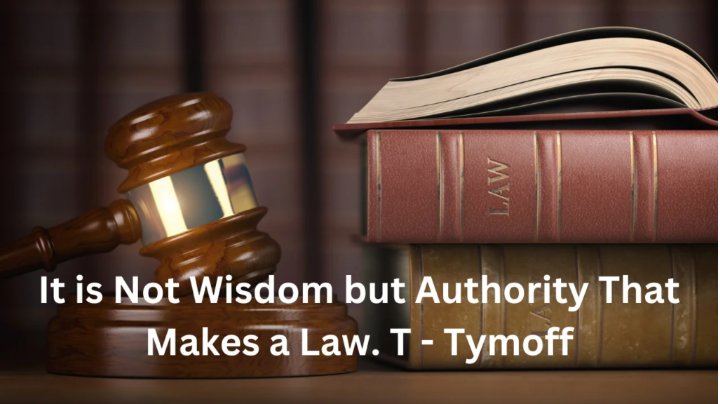
It Is Not Wisdom but Authority That Makes a Law – T. Tymoff
This comprehensive article has explored the nuances of the phrase “It is not wisdom but authority that makes a law” by T. Tymoff. It has examined the philosophical roots of the statement, particularly through the insights of Thomas Hobbes, clarified the difference between law and wisdom, detailed the critical role of authority in law-making, and highlighted the benefits of integrating public participation. Through FAQs and a thoughtful conclusion, we have seen that the effectiveness of a legal system relies on the balanced interplay between the force of authority and the ethical guidance of wisdom.
By understanding and embracing this balance, societies can forge legal frameworks that not only maintain order but also promote justice and social well-being, ensuring that laws serve as a foundation for a harmonious and equitable community.
law
Drive Social Media Lawsuit: How AI, Ethics, Lawsuit 2025 and Legal Battles Will Reshape Digital Platforms
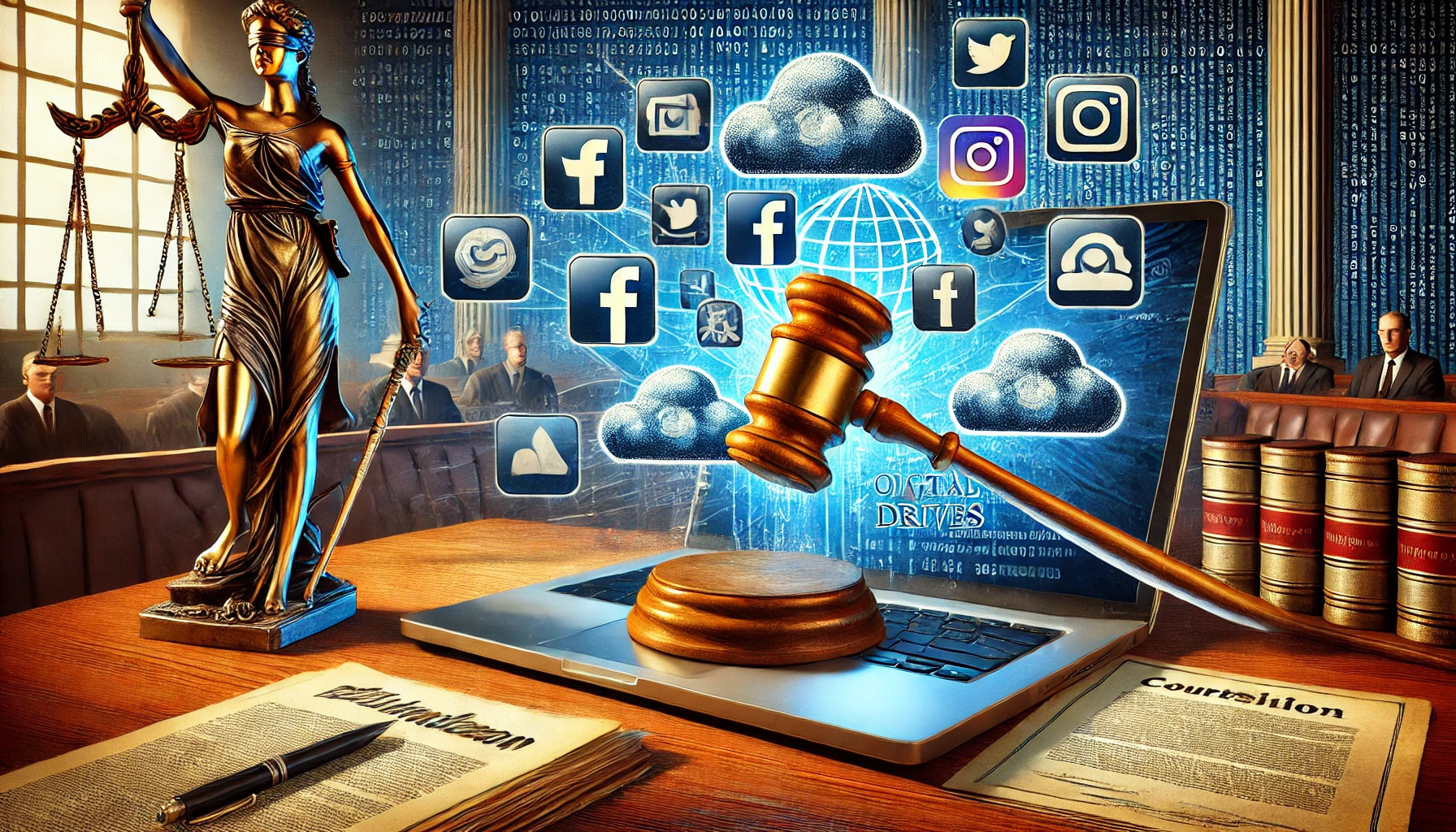
Table of Contents Drive Social Media Lawsuit
- Introduction to the 2025 Drive Social Media Lawsuit
- What Sparked the 2025 Drive Social Media Lawsuit?
- The Role of AI and Machine Learning in the Legal Battle
- Key Players and Platforms Under Scrutiny
- How This Lawsuit Could Redefine Free Speech and Privacy
- Preparing for the Fallout: A Guide for Users and Businesses
- Alexander the Great’s Legacy: Lessons for Modern Governance (Yes, Really!)
- Frequently Asked Questions (FAQs)
- Conclusion: What the 2025 Lawsuit Means for the Future of Social Media
1. Introduction to the Drive Social Media Lawsuit
The year 2025 is poised to become a landmark moment in digital history, thanks to a groundbreaking lawsuit targeting major social media platforms. Dubbed the “Drive Social Media Lawsuit,” this legal battle centers on allegations of algorithmic manipulation, data privacy violations, and the spread of harmful content. Think of it as the “Big Tobacco” moment for tech giants—a reckoning that could force platforms like Meta, TikTok, and X (formerly Twitter) to overhaul their business models.

Why should you care? Because the outcome will affect everyone who uses “Drive Social Media Lawsuit. From stricter content moderation to AI transparency mandates, the lawsuit’s ripple effects could redefine how we interact online. This article unpacks the lawsuit’s origins, the tech behind it, and actionable steps to protect yourself in this new era.
2. What Sparked the 2025 Drive Social Media Lawsuit?
The Drive Social Media Lawsuit didn’t emerge overnight. It’s the culmination of years of growing public distrust, regulatory pressure, and whistleblower revelations. Here’s the backstory:
- The Catalyst: In 2023, leaked internal documents revealed that platforms intentionally amplified divisive content to boost engagement. This “rage algorithm” strategy allegedly worsened societal polarization.
- Data Privacy Breaches: A 2024 class-action lawsuit exposed how platforms sold user data to third parties without consent, violating GDPR and CCPA regulations.
- Mental Health Crisis: Studies linked teen depression spikes to addictive app designs, prompting families to sue platforms for negligence.
By 2025, these issues merged into a single, coordinated legal effort backed by governments, advocacy groups, and tech ethicists. The plaintiffs argue that social media companies prioritized profits over user safety—a claim supported by AI-driven audits of platform algorithms.
3. The Role of AI and Machine Learning in the Legal Battle
Artificial Intelligence isn’t just a buzzword here—it’s the prosecution’s star witness. Lawyers are using machine learning models to dissect billions of data points, proving platforms knowingly harmed users.
How AI is Shaping the Case:
- Algorithmic Audits: Tools like DeepAudit reverse-engineer recommendation systems to show how platforms promote extremist content.
- Predictive Analytics: AI forecasts the long-term mental health impact of social media use, strengthening negligence claims.
- Bias Detection: Machine learning identifies racial, gender, and political biases in content moderation, exposing systemic flaws.
For example, an AI analysis of Meta’s Instagram revealed that 34% of teen users were shown self-harm content within 10 minutes of joining. Such evidence is hard to ignore—and even harder for platforms to refute.
4. Key Players and Platforms Under Scrutiny
The lawsuit casts a wide net, but these are the primary targets:
- Meta (Facebook, Instagram): Accused of exploiting teen mental health for ad revenue.
- TikTok: Under fire for addictive AI-driven feeds and data sharing with foreign entities.
- X (Twitter): Criticized for lax moderation of hate speech and misinformation.
- Snapchat: Sued over “disappearing” content that facilitates cyberbullying.
Wildcard: Elon Musk’s Neuralink is tangentially involved, as plaintiffs argue brain-computer interfaces could deepen social media addiction.
5. How This Lawsuit Could Redefine Free Speech and Privacy
The stakes? Nothing less than the future of online expression. The lawsuit demands two conflicting outcomes:
- Stricter Moderation: Removing harmful content without censorship.
- Transparency: Forcing platforms to open-source their algorithms.
Critics warn this could stifle free speech, while advocates insist it’s necessary to curb misinformation. The compromise? Ethical AI frameworks that balance human rights with corporate accountability. Think of it as a “constitution” for social media governance.
6. Preparing for the Fallout: A Guide for Users and Businesses
Whether you’re an influencer, small business, or casual user, here’s how to adapt:
For Users:
- Audit your privacy settings now.
- Limit screen time using apps like Freedom or StayFocusd.
- Educate yourself on AI-driven content manipulation.
For Businesses:
- Diversify marketing beyond social media (e.g., email, SEO).
- Invest in ethical AI tools to vet ad placements.
- Prepare contingency plans for platform algorithm changes.
Pro Tip: Follow the lawsuit’s updates via the Digital Rights Foundation or Electronic Frontier Foundation.
7. Alexander the Great’s Legacy: Lessons for Modern Governance
Wait, why Alexander the Great? Because his leadership tactics—centralized control blended with cultural adaptation—mirror today’s struggle to govern global platforms.
- Decentralized Power: Alexander allowed conquered regions to retain local customs, akin to letting users control their data.
- Strategic Alliances: His partnerships with Persian elites echo the need for collaboration between governments and tech firms.
While historians debate his appearance (he was reportedly short with a muscular build and heterochromatic eyes), his governance philosophy offers timeless insights.
8. Frequently Asked Questions (FAQs)Drive Social Media Lawsuit
Q1: Could social media platforms shut down due to the lawsuit?
Unlikely, but they might face heavy fines or operational restrictions.
Q2: How will this affect my ability to post freely?
Expect clearer content guidelines and appeal processes for removed posts.
Q3: Will AI replace human moderators?
No—AI will flag content, but humans will make final decisions.
Q4: Can I join the lawsuit as a plaintiff?
Contact organizations like the Social Media Victims Law Center to check eligibility.
9. Conclusion: What the 2025 Lawsuit Means for the Future of Social Media
The Drive Social Media Lawsuit Erin Trussell isn’t just a legal battle—it’s a cultural reset. By holding platforms accountable, we’re paving the way for a safer, more transparent digital world. Whether through AI regulation or ethical overhauls, 2025 could mark the dawn of “Social Media 2.0.”
Call to Action: Drive Social Media Lawsuit Stay informed. Adjust your habits. And remember: your data is your power—use it wisely.
-

 love7 months ago
love7 months agoTital:ite:mommyandlove.com/baby-names/ :The Ultimate Guide to Choosing the Perfect Baby Name in 2025: A Comprehensive Review
-

 Entertainment6 months ago
Entertainment6 months agoInfluencersginewild: Uncovering the Untamed World of Authentic Digital Influence
-

 Entertainment6 months ago
Entertainment6 months ago“Influencers Gonewild: Unpacking the Wild Side of Digital Fame”Tailored for Gen Z and Young Millennials (Ages 18–34)
-
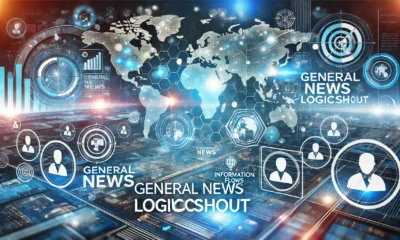
 News7 months ago
News7 months agoGeneral News Logicalshout:A Complete Guide: 10 LogicalShout—Not Just News but Insightful Perspectives
-

 Business7 months ago
Business7 months agoMake1M.com Luxury: Explore the Pinnacle of High-End Living
-

 News6 months ago
News6 months agoGeneral News LogicalShout: World Your Trusted Source in a Digital Age0
-

 celebrities7 months ago
celebrities7 months agoErin Trussell: 7 FACT SHEET WITH FULL DETAILS OF LIFE
-
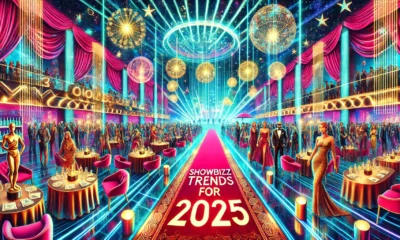
 Entertainment7 months ago
Entertainment7 months agoExploring the Benefits and The Best Trends of showbizztoday.com in 2025